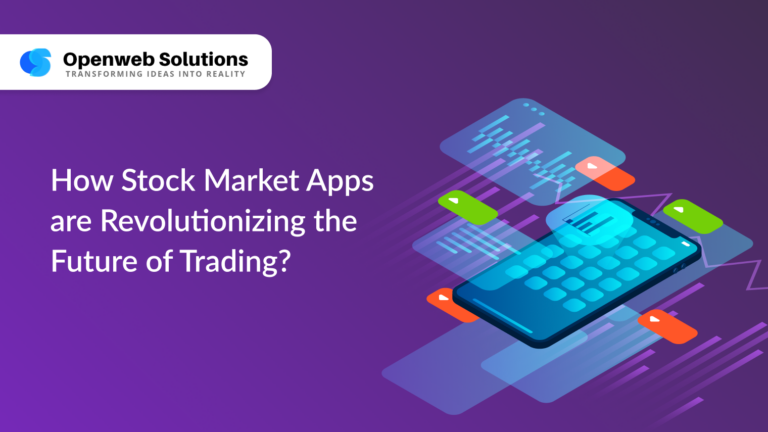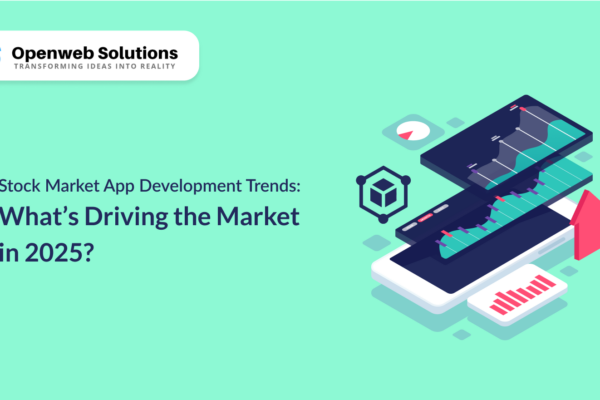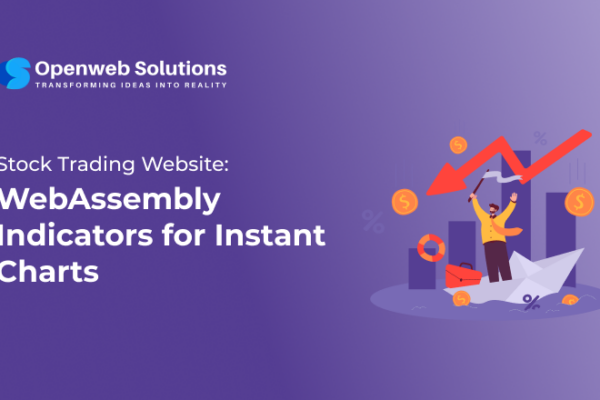Trading has changed significantly in the past few years. It’s because mobile applications have become a part of the common man’s lifestyle. There are different stock market apps which have successfully attracted users. And the respect goes to a stock market app development company. They are not only introducing convenience in trading but reshaping the entire trading ecosystem, allowing a wider audience to participate and take control of their financial future. Let’s explore how stock market apps are shaping the future of trading.
Ways Stock Market Apps Are Revolutionizing Future of Trading
1. Increased Accessibility for All
Before the rise of mobile trading apps, stock trading was largely seen as the domain of professional traders, institutional investors, or those who had the means to hire brokers. Today things have changed with the help of an expert stock market app development company. With the integration of intuitive user interfaces, accessible educational resources, and tools designed for beginners, these apps have broken down the barriers to entry.
Apps now offer simplified trading experiences, providing clear and easy-to-understand charts, explanations, and investment advice. Moreover, low or no minimum investment requirements allow users to start trading with small amounts, something that was previously unimaginable. As a result, individuals who once felt overwhelmed by the complexities of stock trading are now empowered to make informed decisions. This trend is likely to continue as technology evolves, opening the doors for even more people to join the financial markets.
2. Advanced Analytics and AI Integration
The future of trading is data-centric, and a stock market software development company is playing a crucial role in driving this change. The integration of advanced analytics, artificial intelligence (AI), and predictive modeling into stock market apps has transformed the way traders analyze data and make decisions. These technologies provide users with valuable insights into market trends, stock performance, and future forecasts, enabling them to make informed investment choices.
AI algorithms are now capable of sifting through massive amounts of data, detecting patterns, and generating predictive models that help traders optimize their portfolios. Additionally, machine learning technologies are improving the accuracy of these predictions, reducing the risks associated with stock trading. These tools, once reserved for large institutions with significant resources, are now available to all users, thanks to the continuous development of stock market apps. In the future, we can expect these capabilities to become even more refined, providing traders with more personalized and data-driven insights.
3. Security and Compliance
As trading moves into the digital sphere, security has become a primary concern for both users and developers. Handling sensitive financial data online requires robust security measures to ensure that traders’ personal and financial information is protected. Modern stock market website development places a strong emphasis on creating secure platforms that safeguard user data and ensure compliance with financial regulations.
Today’s stock market apps offer features such as encrypted transactions, multi-factor authentication, and real-time fraud detection systems to protect against cyber threats. These measures are essential not only for protecting users but also for maintaining trust in the trading platform itself. Moreover, compliance with international and local financial regulations is paramount, ensuring that these platforms meet legal standards while operating in different regions. The focus on security and compliance will only grow in importance as the financial market becomes increasingly digitized.
4. Personalized User Experience
Customization has become a vital component of modern stock market apps. The ability to personalize the trading experience is reshaping how users engage with financial markets. Stock Market App Development companies can now include features that allow users to customize their dashboards, receive tailored news feeds, and get investment recommendations based on their trading habits and preferences.
This personalized approach enhances user engagement and satisfaction by providing relevant information based on individual needs. AI plays a major role here as well, learning from a user’s behavior to offer more precise recommendations. As technology continues to evolve, the level of personalization is expected to become even more sophisticated, allowing traders to fine-tune their strategies with minimal effort.
Final Thoughts
Stock market apps are not just shaping the future of trading; they are redefining it. By making stock trading more accessible, integrating advanced analytics, enhancing security, and offering personalized experiences, these apps have opened new opportunities for all types of traders. If Stock Market Software Development moves towards further advancement, then the trading will be easy with reduced human error.
The FAQ’s
FAQ 1. How have stock market apps increased accessibility for traders?
Answer:
Stock market apps have significantly increased accessibility by simplifying the trading process with user-friendly interfaces, educational resources, and tools designed for beginners. These apps allow users to start trading with small amounts, eliminating barriers like the need for brokers or large investments. This has empowered individuals who previously found stock trading overwhelming to actively participate in financial markets.
FAQ 2. How do stock market apps use AI and advanced analytics?
Answer:
Stock market apps utilize AI and advanced analytics to analyze massive amounts of market data, detect patterns, and provide predictive models. This helps traders make informed decisions based on accurate forecasts and data-driven insights. Machine learning also improves the precision of predictions, enabling users to optimize their portfolios and reduce trading risks, a feature previously only available to large institutions.
FAQ 3. What security measures are implemented in stock market apps?
Answer:
Modern stock market apps prioritize security by incorporating features like encrypted transactions, multi-factor authentication, and real-time fraud detection systems. These measures protect traders’ personal and financial data from cyber threats. Additionally, stock market apps comply with international and local financial regulations, ensuring secure and legal trading environments across regions.
FAQ 4. How do stock market apps offer a personalized user experience?
Answer:
Stock market apps provide a personalized user experience by allowing users to customize their dashboards, receive tailored news feeds, and get investment recommendations based on their trading habits. AI-driven personalization learns from a user’s behavior and preferences, offering more precise and relevant suggestions, which helps enhance user satisfaction and engagement in financial markets.
FAQ 5. What roles do stock market app development companies play in reshaping the trading ecosystem?
Answer:
Stock market app development companies are at the forefront of reshaping the trading ecosystem by introducing technological innovations that make trading more convenient and accessible. They integrate advanced analytics, AI, and security features into apps, which empowers a wider audience to participate in trading. Their continuous development efforts are redefining trading for both beginners and experienced investors alike.
Partha Ghosh is the Digital Marketing Strategist and Team Lead at PiTangent Analytics and Technology Solutions. He partners with product and sales to grow organic demand and brand trust. A 3X Salesforce certified Marketing Cloud Administrator and Pardot Specialist, Partha is an automation expert who turns strategy into simple repeatable programs. His focus areas include thought leadership, team management, branding, project management, and data-driven marketing. For strategic discussions on go-to-market, automation at scale, and organic growth, connect with Partha on LinkedIn.






